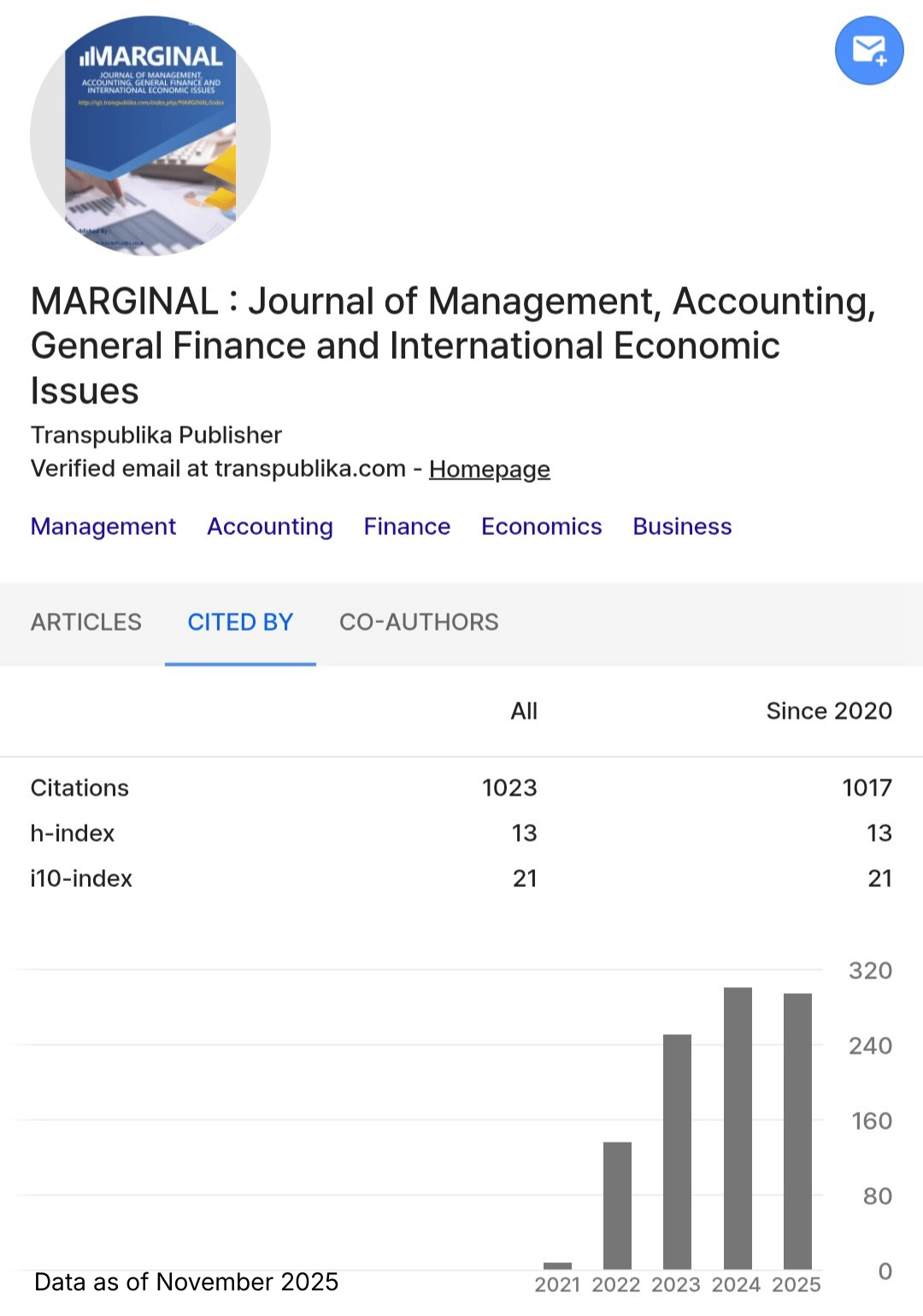THE INFLUENCE OF LITERACY AND FINANCIAL INCLUSION ON INVESTMENT DECISIONS IN GENERATION Z IN MALAUSMA DISTRICT
Main Article Content
Ari Susanto*
The potential of the younger generation, particularly Generation Z, as investors is truly remarkable. With their advanced technological skills, they possess the ability to become key players in driving investment development in Indonesia. Achieving true financial inclusion is closely tied to financial literacy. This study investigates the influence of financial literacy and financial inclusion on investment decisions among Generation Z in the Malausma District of Indonesia. The data utilized in this study consists of primary and secondary data obtained through questionnaires and literature reviews. The sampling method employed was non-probability sampling with a purposive sampling technique. To determine the sample size, the Lemeshow formula was utilized, resulting in 97 respondents, which was rounded up to 100. The data analysis technique involved instrument testing (validity and reliability), multiple linear regression analysis, and hypothesis testing (t-test, f-test, determinant coefficient/R2) using the SPSS Version 25 application. The findings of this research indicate that both financial literacy (X1) and financial inclusion (X2), both individually and collectively, have a positive and significant impact on investment decisions (Y) among Generation Z in the Malausma District.
Afgani, K. F., Pringgabayu, D., Waruwu, F., & Clement, M. (2021). The Effect of financial literacy on generation Z’s stock market participation in Bandung city. International Journal of Business Marketing and Management (IJBMM), 6(8), 44–50.
Agarwal, T. (2016). Twin Pillars of Indian Banking: Financial Literacy and Financial Inclusion. SIES Journal of Management, 12(2).
Hannig, A., & Jansen, S. (2010). Financial inclusion and financial stability: Current policy issues.
Lusardi, A., Michaud, P.-C., & Mitchell, O. S. (2017). Optimal financial knowledge and wealth inequality. Journal of Political Economy, 125(2), 431–477.
Nurwulandari, A. (2022). The Effect of Financial Literacy on Student Financial Management. Jurnal Info Sains: Informatika Dan Sains, 12(02), 79–84.
Patrisia, D., & Abror, A. (2022). Literasi keuangan syariah pada generasi Z: Peran keluarga dan religiusitas. Jurnal Kajian Manajemen Bisnis, 11(1), 1–15.
Rahmi AR, Supriyanto T, N. S. (2022). Factor Analysis of the Influence of Generation Z’s Investment Interest in Sharia Mutual Funds. Journal of Sharia Economics and Banking. 8(1): 2-14.
Saadah, N. (2020). The effect of financial literacy and financial efficacy on individual financial management. Journal of Islamic Economics Management and Business (JIEMB), 2(1), 79–94.
Sanjaya, I., & Nursechafia, N. (2016). Financial inclusion and inclusive growth: A cross-province analysis in Indonesia. Bulletin of Monetary Economics and Banking, 18(3), 281–306.
Sun, S., & Lestari, E. (2022). Analysis of the Influence of Financial Literacy, Investment Knowledge, Investment Motivation and Income on Investment Decisions in Batam Communities. AKUNESA Accounting Journal, 10 (3), 101–114.
Taufiq Z, Purwanto S, F. (2023). Factors that Influence Investment Decisions in Generation Z. Journal of Economics, Management, Business and Social Affairs. 3(4): 602-610.
Tustin, D. H. (2010). An impact assessment of a prototype financial literacy flagship programme in a rural South African setting. African Journal of Business Management, 4(9), 1894.
Viana, E. D., Febrianti, F., & Dewi, F. R. (2021). Literasi keuangan, inklusi keuangan dan minat investasi generasi z di Jabodetabek. Jurnal Manajemen Dan Organisasi, 12(3), 252–264.




















